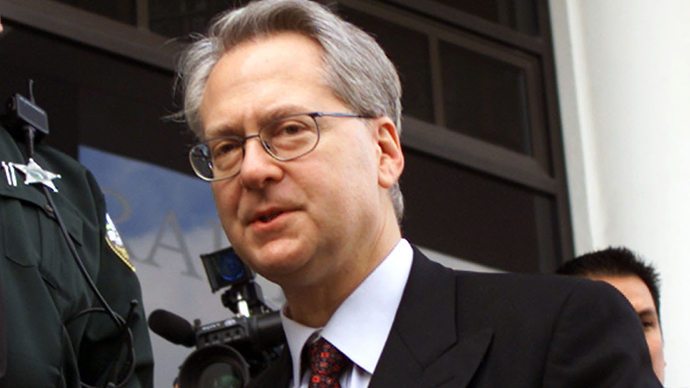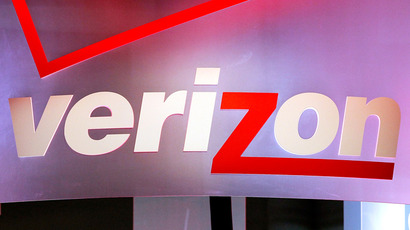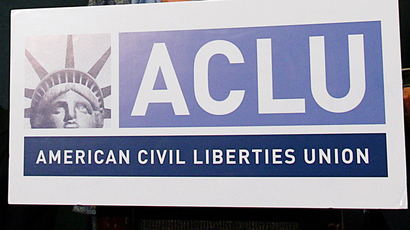Federal judge says NSA's phone surveillance program is likely unconstitutional
A federal court judge in Washington, DC ruled Monday that the United States National Security Agency’s controversial practice of routinely collecting the telephone records of millions of Americans may run afoul of the US Constitution.
Judge Richard Leon of the US District Court for the District of Columbia wrote in an opinion released on Monday that plaintiffs who filed suit against the NSA in June have standing to challenge the spy agency’s program that collects telephony metadata pertaining to millions of Verizon subscribers every day.
The plaintiffs, led by conservative legal activist Larry Klayman, challenged the NSA in court six months ago when they filed a lawsuit calling into question the “secret and illegal government scheme to intercept and analyze vast quantities of domestic telephone communications” that had been made public through a top-secret document leaked to the media by former intelligence contractor Edward Snowden. Britain’s Guardian newspaper and The Washington Post first reported on that leak beginning June 5, and the American Civil Liberties Union also challenged that bulk data collection program in a lawsuit of their own — as have others in the months and weeks since.

Monday, however, is the first time a district court judge has issued a memorandum which might very well lead to a domino effect that ultimately ends with the NSA’s controversial practices being ruled unconstitutional.
Klayman and his co-plaintiffs, Judge Leon wrote, have standing to challenge both the bulk collection of metadata and the analysis of that data through the NSA’s querying process, because the Snowden leaks have allowed them to point to “strong evidence that, as Verizon customers, their telephone metadata has been collected.”

“The government,” Leon wrote, described the “advantages of bulk collection in such a way as to convince me that plaintiffs’ metadata — indeed everyone’s metadata — is analyzed, manually or automatically, whenever the government runs a query using the ‘seed’ a phone number to identifier associated with a phone for which the NSA has not collected metadata.”
“Because the government can use daily metadata collection to engage in ‘repetitive, surreptitious surveillance of a citizen’s private goings on,’ the NSA database ‘implicated the Fourth Amendment each time a government official monitors it,” Leon wrote, later equating the technology the feds rely on as being “almost Orwellian” in nature.
And while the US intelligence community has long relied on an antiquated Supreme Court decision to justify the trawling of metadata as perfectly legal, Leon writes that plaintiffs have the right to an injunction against this practice because, in his opinion, previous interpretations of the case of Smith v Maryland have not taken into account the technological advances that have developed in the 34 years since that ruling.
“Indeed, the question in this case can more properly be styled as follows: When do present-day circumstances — the evolutions in the government’s surveillance capabilities, citizens’ phone habits and the relation between the NSA and telecom companies — become so thoroughly unlike those considered by the Supreme Court that 34 years that to a precedent like Smith simply does not apply?” Leon asked.
“The answer, unfortunately for the government, is now.”
Later on in the 68-page memorandum, Leon says, “I am convinced that the surveillance program now before me is so different from a simple pen register” — the type of search deemed legal in Smith — that it is “of little value in assessing whether the Bulk Telephony Metadata Program constitutes a Fourth Amendment search.”
“I believe that bulk telephone metadata collection and analysis almost certainly does violate a reasonable expectation of privacy,” he wrote.
“It’s one thing to say that police expect phone companies to occasionally provide information to law enforcement; it is quite another to suggest that our citizens expect all phone companies to operate what is effectively a joint intelligence-gathering operation with the government.”
Still later, Leon questioned the reliability of the metadata collection with regards to being the imperative counter-terrorism implement that the NSA touts it to be. “I have serious doubts about the efficacy,” he wrote, while acknowledging that the government has failed to cite a single imminent threat thwarted by its program.
As a result, Leon is approving a request for injunction filed by Klayman and co-plaintiff Charles Strange, and has ordered the government to stop collection through the NSA program of “any telephone metadata associated with their personal Verizon accounts” and the destruction of any metadata collected previously.
“I am not convinced at this point in the litigation that the NSA’s database has ever truly served the purpose of rapidly identify terrorists in time-sensitive investigations, and so I am certainly not convinced that the removal of two individuals from the database will ‘degrade’ the program in any meaningful sense,” he wrote.
Anticipating an appeal, Leon has placed a stay on his order that may be lifted pending the outcome of future litigation expected to continue well through next year.
Meanwhile, the District Court may decide to weigh in on similar lawsuits challenging other NSA programs that have been exposed by Snowden, who fled the country before being revealed as the source of the leak. The whistleblower is currently residing in Russia upon being granted asylum.

“If someone discloses a secret govt program that a Federal Court rules violates the Constitution, that person's a whistleblower, right?” Glenn Greenwald — the Guardian journalist who broke news of the first Snowden leak and others since — wrote on Twitter Monday afternoon.
“Looks like NSA will have to change its rhetoric from ‘blessed by all 3 branches’ to ‘oops -- 2 branches,’” he tweeted.
Within hours of Judge Leon's ruling, Snowden provided a statement to Greenwald that was then published by the New York Times.
“I acted on my belief that the NSA's mass surveillance programs would not withstand a constitutional challenge, and that the American public deserved a chance to see these issues determined by open courts,” Snowden wrote. “Today, a secret program authorized by a secret court was, when exposed to the light of day, found to violate Americans’ rights. It is the first of many.”














